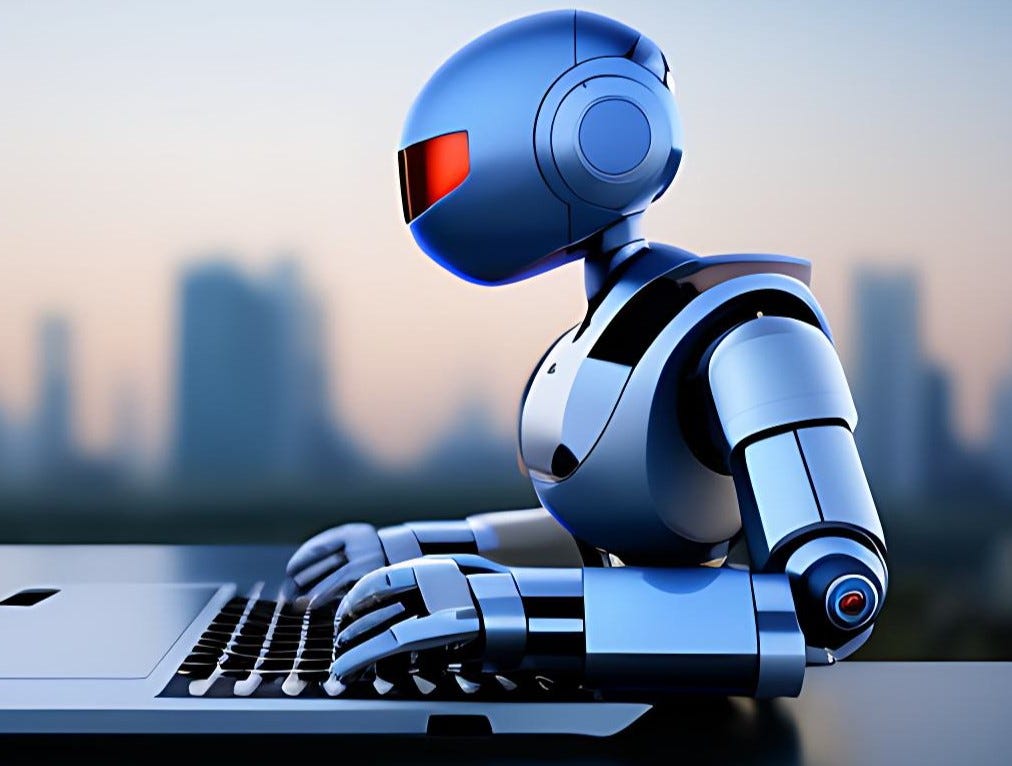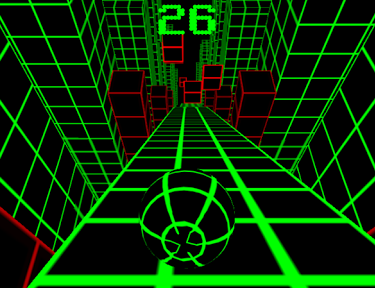Introduction
Artificial Intelligence (AI) has been making waves across various industries, and Hollywood is no exception. The integration of AI in content creation is transforming the landscape of the entertainment industry, offering new opportunities and efficiencies that were previously unimaginable. This article delves into how AI is revolutionizing content creation in Hollywood, highlighting the various facets of this technological evolution.
The Advent of AI in Hollywood
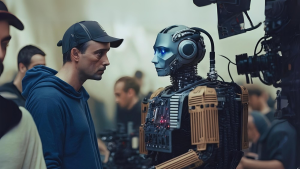
AI content creation is not a futuristic concept but a present reality that is continuously evolving. From scriptwriting to visual effects, AI is being employed to streamline processes, enhance creativity, and reduce costs. The adoption of AI in Hollywood is driven by the need for efficiency and the desire to push the boundaries of what is creatively possible.
Scriptwriting and Story Development
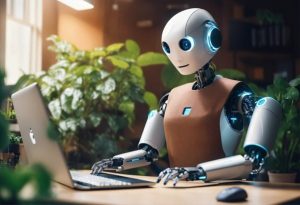
One of the most significant impacts of AI in Hollywood is in the realm of scriptwriting and story development. Traditionally, scriptwriting has been a time-consuming process that involves multiple drafts and revisions. AI-powered tools like Script Book and Plotagon are changing this by analyzing vast amounts of data to generate scripts and storylines.
-
Script Book
Script Book uses machine learning algorithms to analyze scripts and predict their success. By examining elements such as plot structure, character development, and dialogue, Script Book can provide insights that help writers refine their scripts. This not only speeds up the scriptwriting process but also increases the chances of creating a successful film.
-
Plotagon
Plotagon is another AI tool that allows users to create animated stories by simply writing a script. The software automatically generates animation based on the script, making it easier for writers to visualize their stories. This is particularly useful for pre-visualization and pitching ideas to producers.
Casting and Talent Management
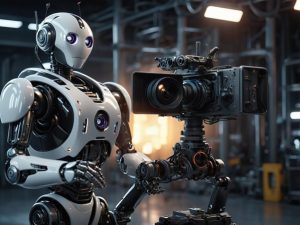
Casting is another area where AI is making a significant impact. Traditional casting processes are often lengthy and subjective. AI can analyze an actor’s past performances, social media presence, and audience engagement to predict their suitability for a role.
-
AI in Casting
AI-powered platforms like Cast It and Casting Networks use machine learning algorithms to match actors with roles based on various criteria. This not only speeds up the casting process but also ensures a better fit between actors and roles, ultimately leading to more compelling performances.
Visual Effects and Animation
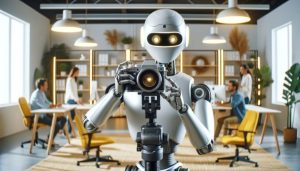
Visual effects (VFX) and animation are areas where AI is truly transformative. AI algorithms can generate realistic effects and animations that would take human artists much longer to create.
-
Deep Learning in VFX
Deep learning techniques are being used to create more realistic visual effects. For example, AI can generate realistic facial expressions and movements, making it easier to create lifelike characters. Companies like Weta Digital and Industrial Light & Magic are already using AI to enhance their VFX capabilities.
-
Procedural Generation
Procedural generation is another AI technique used in animation and VFX. It involves using algorithms to automatically generate complex structures and environments. This is particularly useful for creating large-scale environments like cities or landscapes, saving both time and resources.
Post-Production and Editing
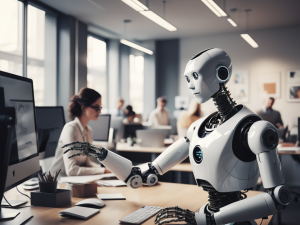
AI is also revolutionizing post-production and editing processes. Traditional editing is a labor intensive process that requires meticulous attention to detail. AI-powered tools can automate many aspects of editing, making the process faster and more efficient.
-
Automated Editing
Tools like Adobe Premiere Pro and Avid Media Composer are incorporating AI features that automate tasks like scene detection, color correction, and audio enhancement. This not only speeds up the editing process but also allows editors to focus on more creative aspects of their work.
-
Voice and Dialogue Editing
AI is also being used to enhance voice and dialogue editing. Tools like Descript use machine learning algorithms to transcribe and edit audio, making it easier to sync dialogue with video and correct any errors.
Marketing and Audience Engagement
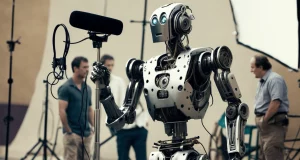
Marketing is a critical aspect of any film’s success, and AI is playing a pivotal role in this area as well. AI can analyze audience data to create targeted marketing campaigns, predict box office performance, and even personalize content recommendations.
-
Predictive Analytics
AI-powered predictive analytics tools can analyze data from various sources, including social media, search trends, and historical box office performance, to predict a film’s success. This helps studios make informed decisions about marketing strategies and distribution.
-
Personalized Recommendations
Streaming platforms like Netflix and Amazon Prime Video use AI algorithms to analyze viewer preferences and recommend content. This not only enhances the user experience but also helps in retaining subscribers and increasing viewership.
Ethical Considerations and Challenges

While the benefits of AI in content creation are immense, there are also ethical considerations and challenges that need to be addressed. Issues like data privacy, algorithmic bias, and the potential loss of jobs are some of the concerns that need to be carefully managed.
-
Data Privacy
The use of AI often involves collecting and analyzing vast amounts of data. Ensuring that this data is handled responsibly and ethically is crucial. Studios and tech companies need to implement robust data privacy policies to protect user information.
-
Algorithmic Bias
AI algorithms are only as good as the data they are trained on. If the training data is biased, the algorithms can perpetuate these biases. It is essential to ensure that AI systems are trained on diverse and representative data to avoid perpetuating stereotypes and biases.
-
Job Displacement
The automation of various aspects of content creation could potentially lead to job displacement. While AI can handle repetitive and time-consuming tasks, it is essential to strike a balance between automation and human creativity. The industry needs to focus on reskilling and upskilling workers to adapt to the changing landscape.
The Future of AI Content Creation in Hollywood
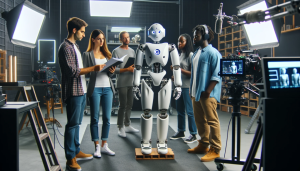
The future of AI content creation in Hollywood looks promising. As AI technology continues to evolve, it will open up new possibilities for storytelling, visual effects, and audience engagement. However, it is crucial to approach this technological revolution with a balanced perspective, considering both the opportunities and challenges.
-
Collaborative Creativity
One of the most exciting prospects of AI in Hollywood is the potential for collaborative creativity. AI can serve as a tool that enhances human creativity rather than replacing it. By automating mundane tasks, AI allows creators to focus on what they do best—telling compelling stories.
-
Real-time Content Generation
Real-time content generation is another area where AI could make a significant impact. With advancements in AI and machine learning, it may soon be possible to generate high-quality content in real-time. This could revolutionize live performances, interactive storytelling, and virtual reality experiences.
-
Enhanced Audience Engagement
AI will continue to play a crucial role in enhancing audience engagement. By analyzing viewer data, AI can help studios create more personalized and immersive experiences. This will not only improve audience satisfaction but also drive revenue growth.
Conclusion
AI is undoubtedly revolutionizing content creation in Hollywood. From scriptwriting and casting to visual effects and marketing, AI is transforming every aspect of the entertainment industry. While there are challenges and ethical considerations to address, the potential benefits of AI in content creation are immense. As the technology continues to evolve, it will open up new possibilities for creativity and innovation, ushering in a new era of storytelling in Hollywood.

